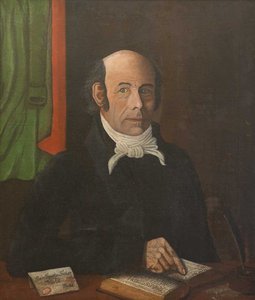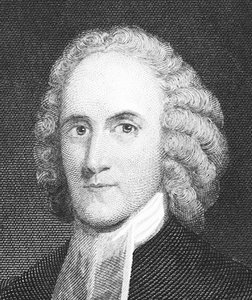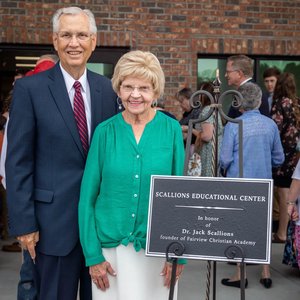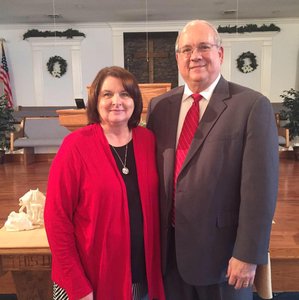
Introduction
When I was being trained for the ministry, the place where I was trained (Crown College in Powell, TN, if you are wondering) put heavy emphasis on "the great men of the faith." I'm actually very grateful for that emphasis. Without it, I would not have been exposed to people who have shaped my thinking about the Scripture for twenty years.
The Challenge of Great Men
That being said, when you talk about the "great men of the faith," often what you mean are guys who pastored huge churches in big places, people like:
- Spurgeon in London
- Moody in Chicago
- Frank Norris in Fort Worth
These men, great as they were, can be dangerous role models for a pastor for several reasons:
Demographics
The first reason is simple demographics. God calls very few of us to places as big as Chicago, Fort Worth, or London. Most of us labor away in small places the world has never heard of, and for most of us, there are a lot fewer fish in the pond. It is pretty much impossible to build a huge church with national impact without a sufficient amount of people in your area, and for many of us, God just hasn't called us to those places.
Finances
Another consideration is finances. Along with a large number of people usually comes a large amount of industry. With that industry comes a certain number of wealthy people who can help finance a large ministry. Personally, I've noticed that many of the very large churches I've attended over the years happen to be in areas where money has flowed for several decades. Today, that usually means the nice suburbs of bigger cities. Not all of us are called to minister there, though.
Talent
Probably the biggest consideration is talent. As hard as it is to admit, most of us are just not as talented as "the great men." They are great for a reason. Most of these heralded men from the past had equal measures of genius, charisma, and leadership ability that God just doesn't give to the rest of us.
Paul addressed this in 1 Corinthians 1:
[1Co 1:26-29 KJV] 26 For ye see your calling, brethren, how that not many wise men after the flesh, not many mighty, not many noble, [are called]: 27 But God hath chosen the foolish things of the world to confound the wise; and God hath chosen the weak things of the world to confound the things which are mighty; 28 And base things of the world, and things which are despised, hath God chosen, [yea], and things which are not, to bring to nought things that are: 29 That no flesh should glory in his presence.
Relatable Role Models
Perhaps one thing that is lacking in our education is some more relatable role models. Maybe it would do us well to think about the ministry of some men who weren't massive talents planted in ideal places.
Jonathan Fisher
This last year at Christmas, I picked up a book on woodworking entitled Hand's Employed Aright. It was a sort of historical view of the life and craft of a man named Jonathan Fisher.

Fisher lived and died in the early part of the 1800s. Raised in Connecticut and educated at Harvard, Fisher ended up serving as the pastor of a congregational church in the frontier town of Blue Hill, Maine, for his entire adult life. He was a man of deep faith who raised nine children and grew to be an influential pastor in his community.
Among his ministry accomplishments:
- He wrote books.
- He helped start a seminary.
- He trained several men for the ministry.
- He helped start a Christian school.
But his church never grew beyond a modest size. Indeed, it couldn't. There weren't that many people in walking or riding distance from Blue Hill, Maine. Despite his obvious talents, Fisher spent most of his life having to supplement his income by farming and building furniture for the local people. (It was his talents as a woodworker, after all, that put him on my radar.)
Jonathan Edwards

Another book which I have found personally helpful is the oddly titled book on the life and ministry of Jonathan Edwards entitled Marriage to a Difficult Man. Jonathan Edwards is the rare pastor who almost everyone has heard about but who never pastored a huge church in a bigger area. He ministered in the sticks in Massachusetts, and while he was very successful in some areas (his preaching and writing), he was eventually rejected and fired by his own parishioners. His biggest impact, however, didn't come from his pen or his pulpit but from his family. Like Fisher, Edwards raised a large and faithful family, and his children and grandchildren had enormous impact on the world.
We Need More Relatable Examples
I have personally found having these more relatable historical role models to be helpful. If "success" has to look like Spurgeon, Moody, or Norris (or MacArthur, Piper, or Begg), then 99.9% of us are going to be failures. If we can recalibrate our minds with better examples of what a faithful ministry looks like, however, maybe we don't have to go through life and ministry feeling like a bunch of failures who don't measure up.
While I hope to find more biographies of "regular" pastors, I don't think books are where most of us will find our examples. We need mentors. Men who have been faithful for decades and who have had more "normal" ministries and who can break bread with us and counsel us through times of difficulty.
Personal Examples
 I am extremely grateful to have worked for Jack Scallions. Dr. Scallions left a promising career in business to enter the ministry. At Tennessee Temple, he stood out and was named student body president. He ended up giving his life (over fifty years at this point) to the service of one church,
I am extremely grateful to have worked for Jack Scallions. Dr. Scallions left a promising career in business to enter the ministry. At Tennessee Temple, he stood out and was named student body president. He ended up giving his life (over fifty years at this point) to the service of one church, Fairview Baptist Church in Athens, TN, where I was able to serve. He started a camp, a Christian School, and served for a long time as president of the Tennessee Association of Christian Schools.
Dr. Scallions pastored in a small town, and despite his decades of faithful ministry, his church never grew beyond around 200 people. His name might not ever end up on a monument, and he'll likely never have a biography written about him, but he is still the person I think of when I imagine a "successful" pastorate in a small town.
I'm also grateful for the mentorship and friendship of other men:

My wife's home church pastor, Wayne Cofield, has faithfully pastored the same congregation in Dalton, Georgia, for over forty years. "Brother Wayne," as everyone calls him, will never pastor a mega church, but at least a dozen missionaries and pastors are serving God around the world in part because of his faithful ministry.
Recently, I've befriended several older pastors through local pastor's fellowships. While there are no doubt many things we disagree on, the faithfulness and friendship of these brothers have been a huge encouragement to me as I've dealt with some difficult seasons of ministry.
Conclusion
I guess the point I am trying to make in this post is this: 99.9% of pastors will never pastor a huge church, and the men who do pastor a huge church are almost certainly given both circumstances and talents different from ours. Comparing ourselves to those men is a fool's errand and a recipe for discouragement. We need to seek out more relatable examples of faithful ministry and recalibrate our minds to what faithful pastoring looks like.